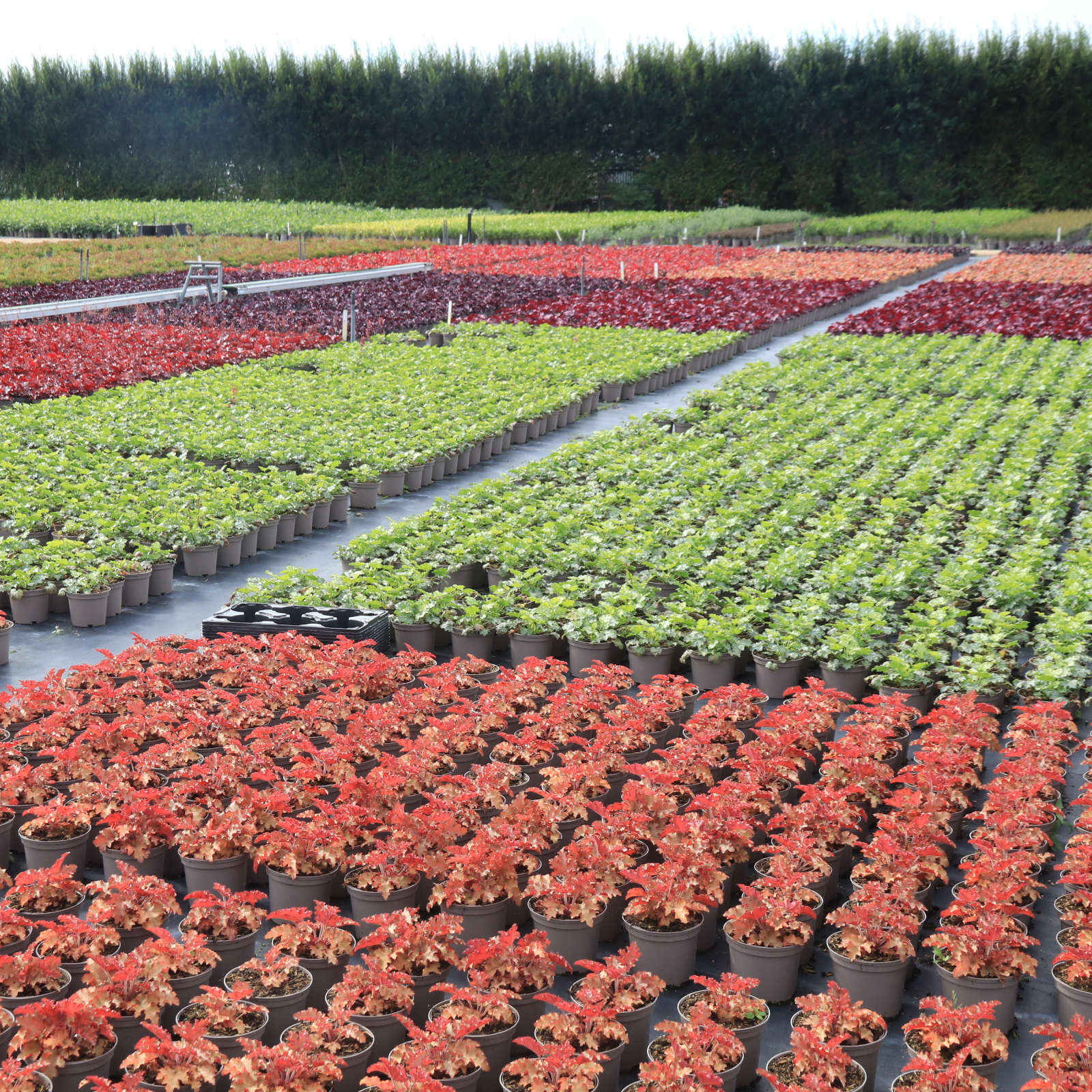UK horticulture sector reports significant drop in the use of peat
by Tess Skidmore

There has been a dramatic drop in the amount of peat used in compost according to new report led by the Horticultural Trades Association (HTA) and Growing Media Association (GMA). The shift is because of UK suppliers, growers and retailers working together to develop new products and alternatives.
The annual Growing Media Monitor* indicates that the use of peat in the retail sector fell from 35.5 percent in 2020 to 29.8 percent in 2021.
During the same period, wood-based alternatives in compost used by UK consumers overtook peat for the first time.
Meanwhile, 2021 saw the most substantial reduction in the use of peat by commercial growers in a decade. They grow the plants and trees sold for our gardens, streets & parks, and which provide fruit, herbs, salads and veg seedlings, and peat fell from 62.3 percent to 51.7 percent.
James Barnes, chair of the HTA said: “These findings demonstrate that our industry is making dramatic and effective strides to voluntarily reducing peat use and that industry led initiatives are already making great progress.
“We have committed to the removal of peat from compost in retail as early as 2025 and
and we continue to work with the government on finding pragmatic solutions for a transition to peat-free products. However, to allow us to accelerate this progress we urgently need the government to put its energies into addressing the barriers to alternatives rather than legislating for a goal that the industry is well on track to meeting.”
There are still significant challenges to removing peat from some horticultural crops in Britain and critical to the success of the transition is the availability of alternatives. For example, while the use of wood-based materials has increased, competition and demand from other industries is a considerable barrier. Use of coir fell in 2021 compared with 2020 as shipping routes from India were disrupted during the pandemic, which also illustrates some of the vulnerabilities in the supply chain of peat alternatives to the UK.
Peat used in professional horticulture is frequently used for producing commercial crops that also have major technical barriers to removing it, such as the case for mushroom production where a suitable alternative has yet to be found, despite many years of research. The competitiveness and viability of many businesses in the UK could be at risk if peat is removed before alternatives are researched and trialled - a process which takes years.
An additional driver behind the drop in peat use is the growing number of peat free options that are now being manufactured and sold by retailers.
Neil Bragg, chair of the GMA, added that the UK horticultural industry still faces serious challenges related to the removal of peat from the sector but has made real progress. “Working with all partners from NGOs, Defra, retailers, and growers, we have achieved significant results and the industry continues to develop new and novel materials to use in growing media.
“The UK is currently way ahead of the rest of Europe in peat free developments and continues to successfully demonstrate what can be achieved by working together.”
Allensmore Nurseries has been trialling peat alternatives for the last five years to help the horticulture industry reduce the amount of peat being used.
They grow over six million plants for the garden centre, DIY and supermarket sectors. Employing over two hundred staff, Allensmore is currently trialling a programme where they have reduced the amount of peat by half and replaced it with a wood fibre and composted bark alternative.
Geoff Caesar is the Business Development Director at Allensmore who leads the peat-free programme. To date they have worked with three different suppliers to grow batches of peat-free plants and have analysed over five hundred trials.
Geoff said: “We have a 50-year history in growing plants in peat, however we do recognise the environmental impact of using peat.
“The results of this trial will help us make decisions about how we can reduce the use of peat in our media. So far, we have focused on plants potted and sold within the spring period. We are now going on to evaluate plants grown and sold through the summer and autumn and will follow this with plants that are potted over winter and sold early the following year.”
Allensmore Nurseries has driven some of the progress in the industry over the last five years. “UK growers are moving quicker than some parts of the EU, but this is perhaps inevitable when you consider EU growers are not facing a potential peat ban,” says Geoff.
“UK growers are using less peat, but some plants will need more time and support to ensure that they can remain in production. It would be a great shame to see plants like Rhododendrons and Azalea no longer grown in the UK because growers were not given enough research and support to find suitable alternatives to peat.”
Geoff highlights that the UK plant industry thrives on a wide and exciting range of plants, with new annual introductions. Imposing a ban that would remove the time needed to complete peat-free trials would seriously impact the success of the ornamental plant sector and reduce the range and quality of plants available to UK gardeners.
“We are working with the RHS to provide fellowship funding so that we can put in place scientists to help the industry tackle this ongoing challenge,” says Geoff.
The Growing Media Monitor Report is developed annually by the HTA, the AHDB, the Growing Media Association and the Department of Environment Food and Rural Affairs.
https://bit.ly/HTAgrowingmedia
